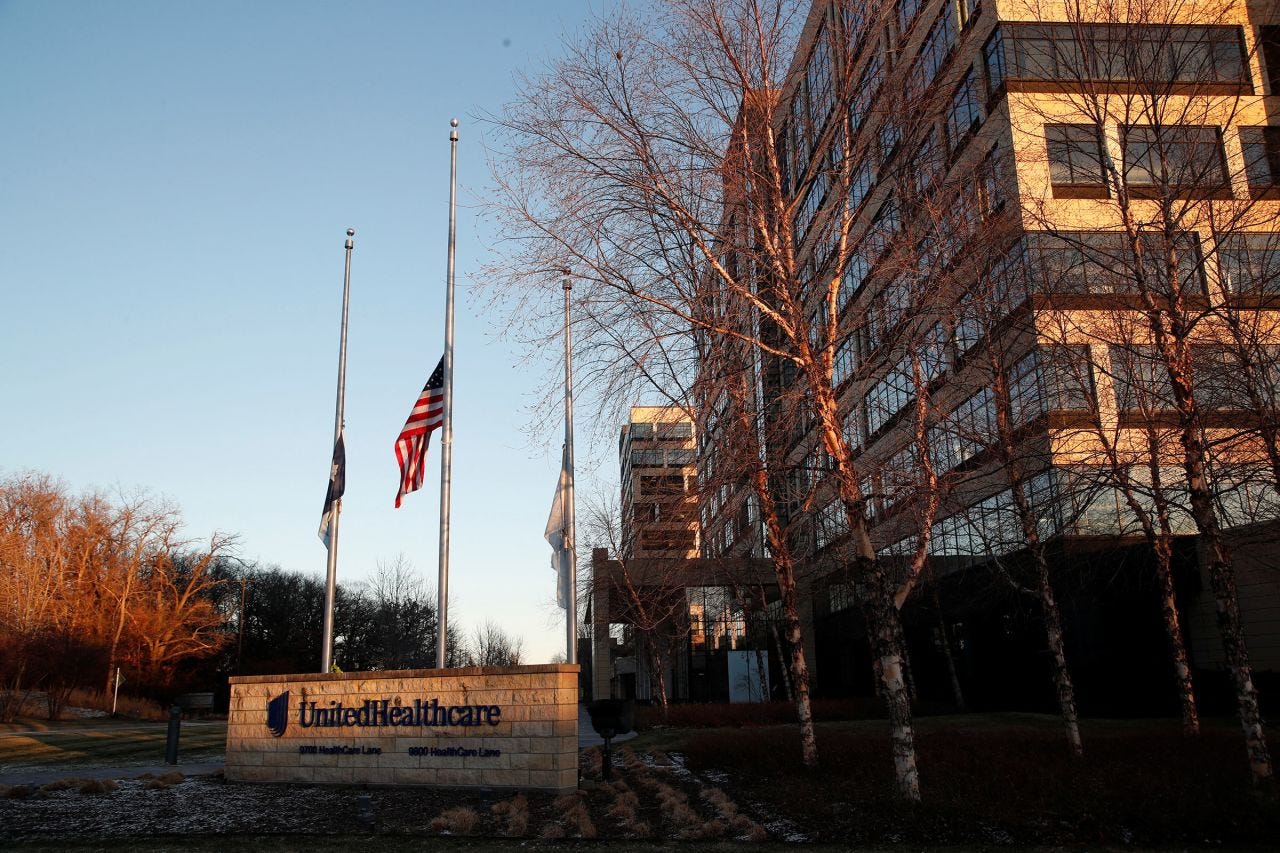The assassination of a health insurance CEO in New York sparks a wave of hatred against insurers
The murder of Brian Thomson, CEO of America's largest health insurer, has sparked a wave of social media testimonies from Americans angered by denied reimbursement claims.

Brian Thomson, the head of UnitedHealthcare—the largest health insurance company in the United States—was on his way early Wednesday morning to an investor meeting at a Manhattan hotel when he was ambushed in the street. A masked and black-clad shooter awaited him. Security cameras captured the suspect firing at Thomson’s back. The 50-year-old father of two succumbed to his injuries shortly after being rushed to the hospital.
By Friday, the shooter remained at large. He initially fled on foot before escaping on an electric bike, with police suspecting he passed through Central Park, Manhattan’s sprawling green space, where his trail went cold. Investigators are convinced it was a “targeted and premeditated attack.” According to CBS, the weapon used was a silenced Swiss-made pistol manufactured by B&T, based in Spiez, Switzerland. Media outlets claim that casings found near the Hilton Hotel bore the inscriptions “delay” and “deny,” terminology commonly associated with health insurers when rejecting reimbursement claims. Police have neither confirmed this detail nor disclosed the motive for the killing. This could also be an attempt to mislead investigators.
Online, however, the public wasted no time drawing their own conclusions. Far from eliciting sympathy, the death of Brian Thomson—who had led UnitedHealthcare since 2021—has fueled an outpouring of anger and condemnation of insurers. The same day as the assassination, the Network Contagion Research Institute, a center specializing in digital phenomena, reported a “surge in social media posts glorifying the event, with some even calling for further acts of violence.” These hateful posts, the institute noted, were viewed “tens of millions of times.”
Heightened security measures
Hours after the murder, a user on X (formerly Twitter) posted, “To whoever got the UnitedHealthcare CEO outside the Hilton: Are you aware there are other insurance executives too?” That post, now deleted, garnered nearly a million views. Another anonymous user responded, “Do we continue?” in a post that went even more viral. Others circulated names and photos of other insurance executives.
These threats prompted affected companies to remove executives' names from their websites and increase security measures. On Facebook, UnitedHealthcare disabled comments on its condolence message for Thomson after it was inundated with tens of thousands of reactions, mostly mocking. The Washington Post revealed that while some online sleuths attempted to identify the gunman using two police-released photos—where his face was briefly visible—most comments portrayed the fugitive as a “hero” deserving protection.
In a provocatively titled blog post, Why People Want Insurance Executives Dead, journalist Taylor Lorenz, who specializes in social media, wrote on Thursday: “This doesn’t mean people should assassinate them. But if you’ve had a loved one suffer or die because of an insurance denial, it’s understandable to wish the same fate on those responsible.” Her post sparked outrage. Thomson’s widow later stated that her husband had been the target of threats. Anonymous colleagues described him as a leader genuinely striving to improve customer service.
A torrent of accusatory testimonies
Without explicitly endorsing the assassination, many Americans have since Wednesday shared stories online of reimbursement requests they believe were unfairly denied. UnitedHealthcare, employing 144,000 people in the U.S. and abroad, insures 51 million Americans. Its parent company, UnitedHealth Group, boasts an annual revenue of $371 billion, according to Agence France-Presse.
One UnitedHealthcare customer, whose story was amplified by CNN, recounted how the insurer “rejected her surgery two days before it was scheduled.” “I was in tears at the hospital’s billing office. The surgeon spent a day and a half resolving the issue—time he could have used to treat other patients,” she said. On social media, numerous healthcare professionals describe mounting barriers insurers erect against reimbursement for what they consider essential treatments. One doctor shared a scathing letter he’d sent to UnitedHealthcare’s appeals department after the company refused to cover an anti-nausea treatment for a child undergoing chemotherapy.
Sky-high healthcare costs
A 2023 study by public health research organization KFF revealed that 20% of insured Americans had claims denied within the previous year. From 2020 to 2022, UnitedHealthcare faced criticism for doubling its denial rate for post-hospitalization care for seniors covered by Medicare, a government program managed jointly with private insurers. This spike, according to an October Senate report, was attributed to automation in processing claims. The increase in denials outpaced that of UnitedHealthcare’s competitors, the report noted.
In the United States, health insurance is largely privatized, and medical costs are exorbitant. Tasked by future President Donald Trump with cutting federal spending, billionaire Elon Musk, visiting Washington this week, declined to comment on whether he intended to target Medicare and Medicaid—the latter covering the poorest Americans. These two programs constitute major federal expenditures. Trump has pledged during his campaign not to touch them. However, during his first presidency, he attempted to repeal his predecessor’s Affordable Care Act (Obamacare), which reduced the number of uninsured Americans, particularly by expanding Medicare and Medicaid.



